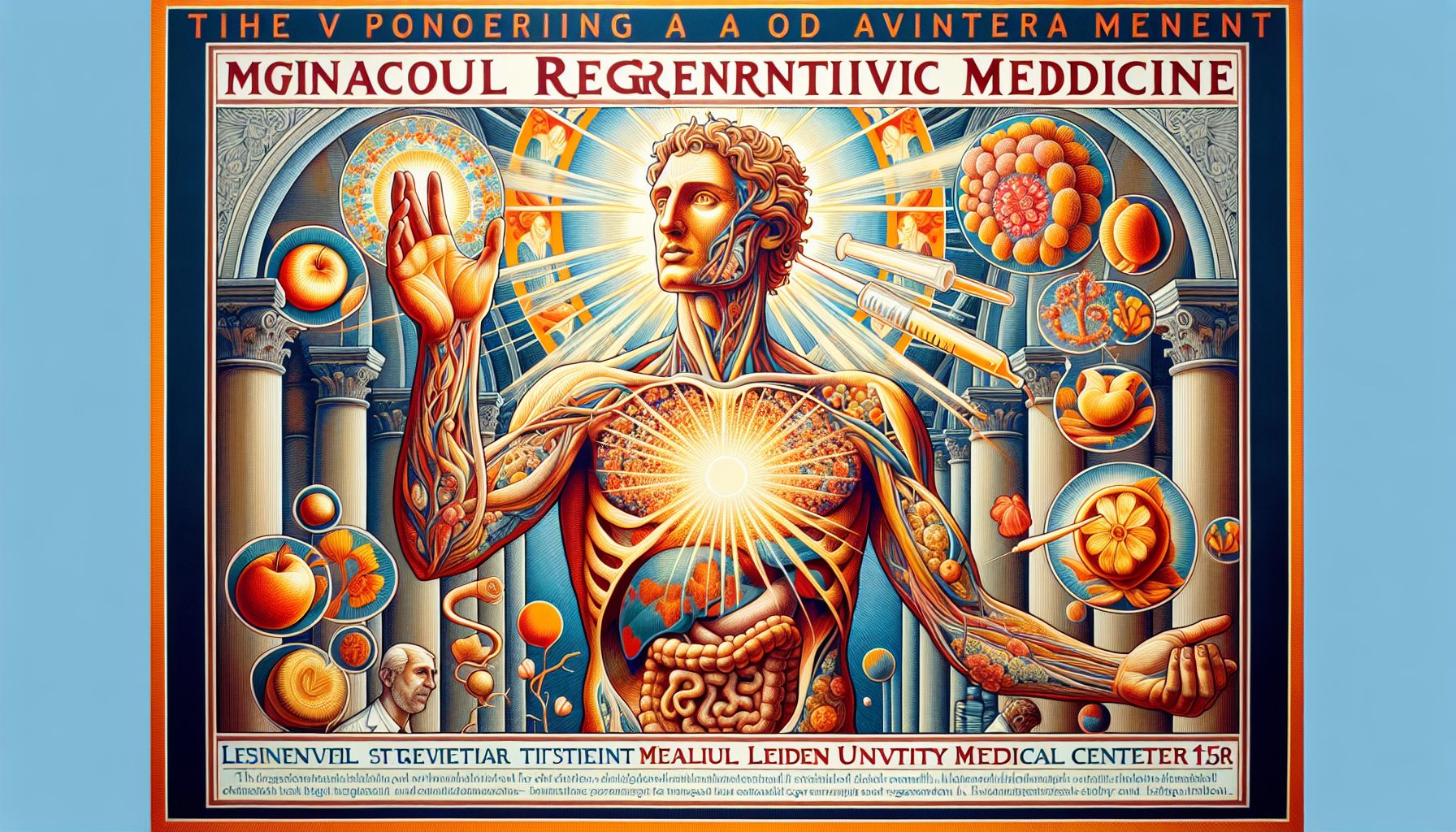Pioneering Regenerative Medicine: LUMC's Quest to Restore Health

Leiden University Medical Center excels in advancing regenerative medicine, aiming to heal through tissue and organ regeneration.
A New Frontier in Medical Science
The Leiden University Medical Center (LUMC) has become synonymous with innovation and progress in the field of regenerative medicine. This multidisciplinary domain of healthtech focuses on repairing, replacing, or regenerating human cells, tissues, or organs to restore or establish normal function. The recent advancements by LUMC are a beacon of hope for those suffering from debilitating diseases and represent a significant leap forward in medical science.
The Core of LUMC’s Innovations
At the heart of LUMC’s regenerative medicine research is the Regenerative Medicine of Tissues and Organs (RegMedTO) innovation theme. This initiative is driven by the vision to transform patient care through cutting-edge scientific research and collaboration among clinical and basic scientists. By employing advanced (stem) cell technologies, gene editing, and innovative biomaterials, LUMC is not just treating but potentially curing diseases with precision medicine approaches. Leading this charge are experts like Christine Mummery, Ian Alwayn, and Françoise Carlotti, whose collective efforts in stem cell research, transplantation, and diabetes therapies are paving the way for groundbreaking treatments[1].
Translating Research into Therapy
LUMC’s regenerative medicine endeavors are not confined to theoretical research. The institution is actively translating these scientific discoveries into tangible therapies. For instance, their work on organ-on-chip models and transplantation procedures is moving from the lab bench to the clinic, promising a new generation of medical treatments. The focus on interdisciplinary collaboration is crucial for the development of these advanced therapies, ensuring that the research benefits from a wide spectrum of expertise[1].
Extending the Frontiers of Regenerative Medicine
The implications of LUMC’s regenerative medicine are extensive and extend beyond the initial medical applications. One intriguing line of research explores the potential of fecal microbiota transplants from healthy donors to combat resistant gut bacteria in chronically ill patients. This research, in collaboration with the Netherlands Donor Feces Bank, has shown promising results in the suppression of antibiotic resistance. Moreover, there’s ongoing research to enhance the effectiveness of immunotherapy in metastatic melanoma patients through fecal transplants[2].
The Global Impact of LUMC’s Research
The Leiden University Medical Center, based in Leiden, the Netherlands, is not just a national leader but a global pioneer in the field of regenerative medicine. The work done by LUMC’s researchers is poised to have a lasting impact on the global healthcare landscape. As they continue to explore and innovate within this field, the potential for new and improved treatments for a range of diseases holds promise for a healthier future for all[3].

